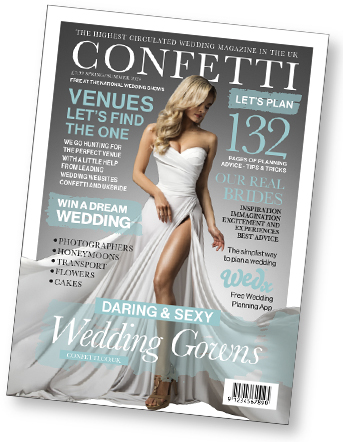Your engagement ring is the most precious – and probably the most expensive – item of jewellery you own. It’s also the one piece you’re guaranteed to wear day in and day out for decades to come. So once you’ve slipped it on your finger (and shared the news with the world), it’s essential to learn how to look after it. To find out all the must-follow rules for engagement-ring care, we caught up with the jewellery experts at 77 Diamonds and Beaverbrooks.

RULE #1: Take out insurance ASAP
“The ring becomes the responsibility of the customer as soon as it leaves our showroom,” says Anna Byers, head of bespoke at engagement-ring specialists 77 Diamonds. Which means if you’re reading this and your ring’s not insured yet, drop everything and sort it out, stat. Anna recommends T.H. March if you’re looking for a specialist jewellery insurer, however, as she points out, “the most cost effective option is usually to put the ring on your home insurance.”
RULE #2: Get the perfect fit
Your first call post-engagement (after your friends and family, of course) should be to your jeweller to make an appointment for a ring resize. “Finger sizes can change quite dramatically according to temperature, so try to make sure that when you have your finger sized, you’re not too hot or too cold,” Anna says. “Physical activity can also have an effect, so when you come in for a resize, take the lift up to our floor and not the stairs!” It’s probably best to skip the pre-appointment HIIT class, while you’re at it.
Above all, trust the professionals and don’t worry if the perfect fit is actually tighter than you expected. “We often find that people are tempted to choose a size that is a bit too loose to start with,” Anna says. “Engagement rings in particular are top-heavy, so they are prone to spinning on the finger and need to hold the finger firmly.”
RULE #3: Schedule a manicure – but beware of the hand creams
If manicures are your thing, then definitely book yourself in for an engagement treatment, but watch out for all those products. “Moisturising lotions are great for your hands, but not so great for your diamonds,” explains Lorna Haddon, head of diamonds and jewellery at Beaverbrooks. “Creams and lotions can dull the sparkle of the diamond over time, so make sure you remove your ring before applying.”
RULE #4: Do a monthly deep clean at home
“Place the ring in a bowl of warm water and add some of your usual washing-up liquid,” recommends Tamra Burke, aftersales manager at 77 Diamonds. “Soak the ring for a couple of minutes, then take a soft toothbrush and gently brush underneath the diamonds to remove all of the products and dirt that catch there.” Finish by rinsing the ring in a bowl of cold water and drying with a bit of kitchen roll. A final word of warning from Tamra: “Never wash your ring over the sink!”
RULE #5: Keep your ring away from make-up and styling products
“Fake tan, make-up, sunscreen, hair products and perfume can all cause metal to tarnish, so it’s best to wait for your products to dry before putting on your jewellery,” advises Tamra.
RULE #6: Be willing to take it off
“Your ring should be removed for hands-on activities such as going to the gym, gardening, cooking, cleaning and DIY around the home,” Tamra says. “And if you want the ring to retain its sparkle, remove it for showering, swimming and sleeping.” For sleeping? Yes! See Rule #7.
RULE #7: Tuck your ring in at night
“Try to get in the habit of removing all of your jewellery before bed,” suggests Lorna, who warns that the setting can catch on the fibres of your duvet and, in time, cause the claws to loosen. “Popping your ring in a fabric-lined jewellery box will keep it from tarnishing or scratching over time.”
RULE #8: Put this tool in your bag
Here’s a personal tip from Lorna: “I keep my trusty Diamond Dazzle Stik with me at all times, next to my lipstick for whenever I need that little boost of sparkle.” It looks like a mascara tube and contains a brush and cleaning/polishing gel that’s ideal for on-the-go touch-ups.
RULE #9: Know your metal
While the care and cleaning instructions are the same for platinum and the different types of gold, there are some specifics you should be aware of. “Platinum is softer and accumulates scratches more easily than other metals,” Tamra points out. “And white gold has a rhodium plating which wears down over time, with the natural yellow of the gold showing through. For this reason, white gold requires plating every one to two years.”
RULE #10: Schedule an annual professional check-up
At least once a year (and ideally twice), you should visit your jeweller for an assessment and cleaning. “As well as keeping your diamond bright, they can check the stone is still set firmly and the claws are tightly in place,” says Lorna. Because when it comes to a diamond, prevention is definitely better than cure.


